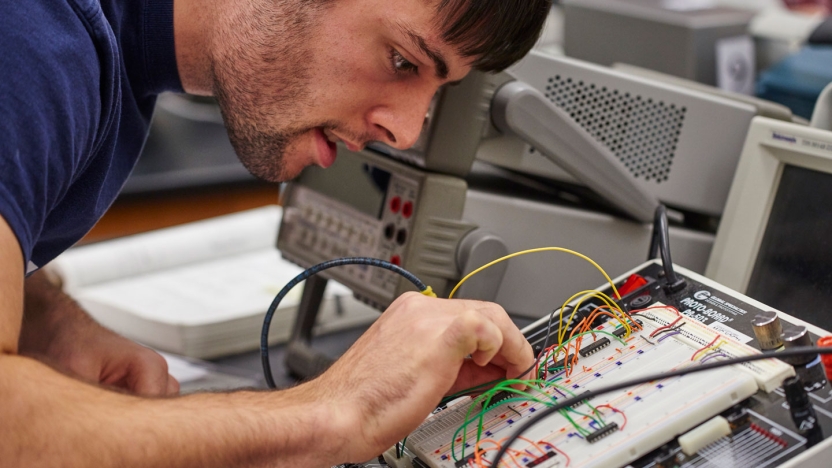Student Resources

Frequently Asked Questions
How do I request transfer credit for a summer course or a course taken abroad?
The Registrar’s Office requires you to receive transfer credit approval from the chair of the Physics Department. Be aware that there are two different types of credits you can request. If you want credit for a specific physics course taught at Middlebury, the course taken off-campus will need to be essentially the same as the one taught at Middlebury. If our course is calculus-based and covers certain topics, the course taken off-campus will need to be calculus-based and cover nearly the same topics. You may also apply for a general credit that will count toward the 36-course graduation requirement but won’t be listed on your transcript as equivalent to one of our courses. For a general credit, the course needn’t be identical to one of ours but must still meet the transfer credit requirements set by the College. When you reach out to the department chair at pdc@middlebury.edu, please provide the following information, in addition to downloading a transfer credit form:
- Name of institution and verification that it’s not a community college. Also provide verification that the institution is accredited.
- Description of the course, including information on the topics covered. Attach either a syllabus from this year’s course or from the previous year if the topics don’t change.
- Evidence that the course is calculus-based, if you want to receive specific credit for a course taught in the Physics Department at Middlebury.
- Separately list the number of hours the course meets for lectures and the number of hours the course meets for labs, on the transfer credit form.
- Indicate which category of credit (general or specific) you’re requesting.
- Indicate whether the course will be taught in person or remotely.
- Indicate whether you are a physics major or intend to become one.
How do I learn about careers in physics and astronomy?
Check out the website created by the American Institute of Physics on Career Resources. If you are actively looking for a job, you can also check out the Physics Today job postings.
What courses should I take if I’m interested in pursuing a graduate degree?
In addition to the 12 courses required for the major, we recommend that you take as many additional physics electives as possible, up to the 16 fall/spring course limit allowed by the College. Be strategic in your choice of electives: the strongest candidates for graduate school typically take advanced quantum mechanics (PHYS 0401), statistical mechanics (PHYS 0350), and advanced classical mechanics (PHYS 0330). Summer research experience is essential as well.
How do I learn about research opportunities for physics and astronomy majors within the Physics and Astronomy Department?
Check out the Physics and Astronomy Summer Opportunities site at go/physicssummer. Also visit the Office of Undergraduate Research.
How do I learn about summer research opportunities outside of Middlebury?
Summer research opportunities are hosted by institutions throughout the United States. For example, the National Science Foundation (NSF) funds positions under the overarching program of Research Experience for Undergraduates (REU). Though many are open only to U.S. citizens, few programs include international students and/or locations.
You can find more information on the Physics and Astronomy Summer Opportunities site at go/physicssummer.
How do I request a letter of recommendation from a faculty member?
Your professors are committed to helping you further your career goals. Don’t be shy about asking for a letter. All we ask in return is that you give us plenty of lead time—at least one month—so that we can craft thoughtful letters. Provide as much information as possible, including which courses you’ve taken with the faculty member, your goals for the position, past work that’s relevant to the position, and relevant due dates. Some faculty will ask you to maintain a shared spreadsheet with information organized by due date. Please complete your portion of the submission process early enough to give your professors enough flexibility to submit our letters at a convenient time.
Library Services
Research and Technology Help
- Technology Support—ITS and the Helpdesk.
- Armstrong Library—Location, contacts, and collection description for the science library.
- Library Links—Library and technology information and advice.
All science departments at Middlebury College are supported by Sciences Technical Support Services, members of whom provide expertise in electronics, in-house machining, welding, and maintenance of advanced instrumentation.
Past Senior Theses
See a listing of past thesis topics researched and written about by students majoring in physics.
